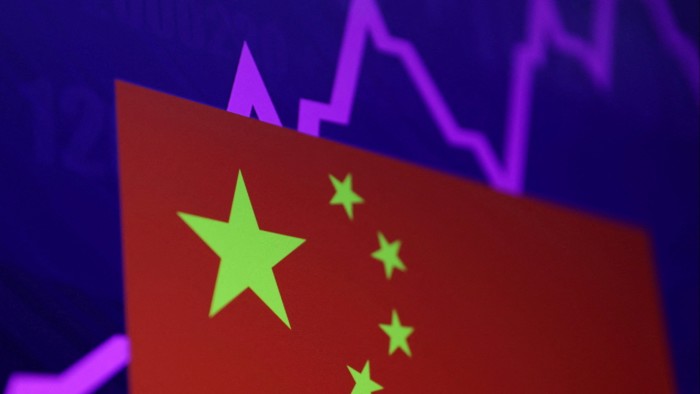Unlock the Editor’s Digest for free
Roula Khalaf, Editor of the FT, selects her favourite stories in this weekly newsletter.
China’s regulators sought to reassure markets on Monday as equities and the renminbi extended losses in a rocky start to the year, following weak economic data and geopolitical uncertainty ahead of Donald Trump’s inauguration.
Mainland China’s benchmark CSI 300 index edged down 0.2 per cent on Monday and has declined 4.1 per cent in the first three trading days of the year, marking the worst start to 2025 among major Asian indices.
Small-cap stocks on the CSI 2000 have fallen 6.6 per cent since the start of the year. Hong Kong’s Hang Seng index shed 0.4 per cent on Monday and is down 1.2 per cent so far this year.
The declines came as China’s stock exchanges held meetings with international investors and the central bank reaffirmed its determination to keep the currency stable, with Trump’s threat of dramatically increased tariffs on Chinese exports looming.
“At the moment everyone is wondering what Trump 2.0 will bring,” said Jason Lui, head of Asia-Pacific equity and derivative strategy at BNP Paribas. “It’s reasonable for investors to try and take some profit.”
China’s currency slid to a 15-month low of Rmb7.33 to the dollar on Monday, despite the People’s Bank of China holding steady its daily trading band for onshore renminbi. Selling pressure on China’s currency tends to be correlated with downward pressure on Chinese equities, said analysts.
Weak manufacturing data, a two-year high for the dollar index and Trump’s impending return all contributed to outflow pressure on Chinese stocks, said Kevin Liu, strategist with CICC.
The Shanghai and Shenzhen exchanges sought to reassure investors that China’s economy was supported by “solid fundamentals and resilience” during a weekend meeting with foreign institutions “to solicit opinions and suggestions” on recent moves in Chinese equities, they said on Sunday.
The central bank on Monday kept the daily fixing rate — the midpoint around which the renminbi is allowed to trade 2 per cent in either direction against the dollar — at Rmb7.19, in spite of selling pressure on the currency.
Its newspaper, the Financial News, said the central bank would “resolutely guard against the risk of exchange rate overshooting and maintain the basic stability” of the renminbi.
It added that the central bank’s past “experience of multiple rounds of appreciation and depreciation” showed it had “sufficient” tools to keep the exchange rate “basically stable”.
In another sign of weak sentiment, investors continued to purchase long-dated sovereign debt, as concerns over weak domestic consumption bolstered bets that the PBoC would further ease monetary policy.
The yield on 10-year Chinese government bonds fell 0.015 percentage points to 1.61 per cent on Monday, after hitting its all-time low below 1.6 per cent last Thursday. Bond yields move inversely to prices.
The weaker opening to the year comes despite announcements from Beijing that it wants to boost domestic consumption following a prolonged property crisis.
China’s rubber-stamp parliament is set to meet in March to unveil its economic policy agenda for what is expected to be a difficult year.
“In terms of key things to look for in 2025 . . . we think investors need to see more regarding consumption,” said Winnie Wu, chief China equity strategist at Bank of America, adding that government support for the private sector and youth employment would be essential.
Despite the rough start to 2025, analysts noted that Chinese equities had a strong 2024 after a protracted slump, with the CSI 300 ending the year up 14.7 per cent.
“We do think the worst of derating is over,” said Wu.
Read the full article here




